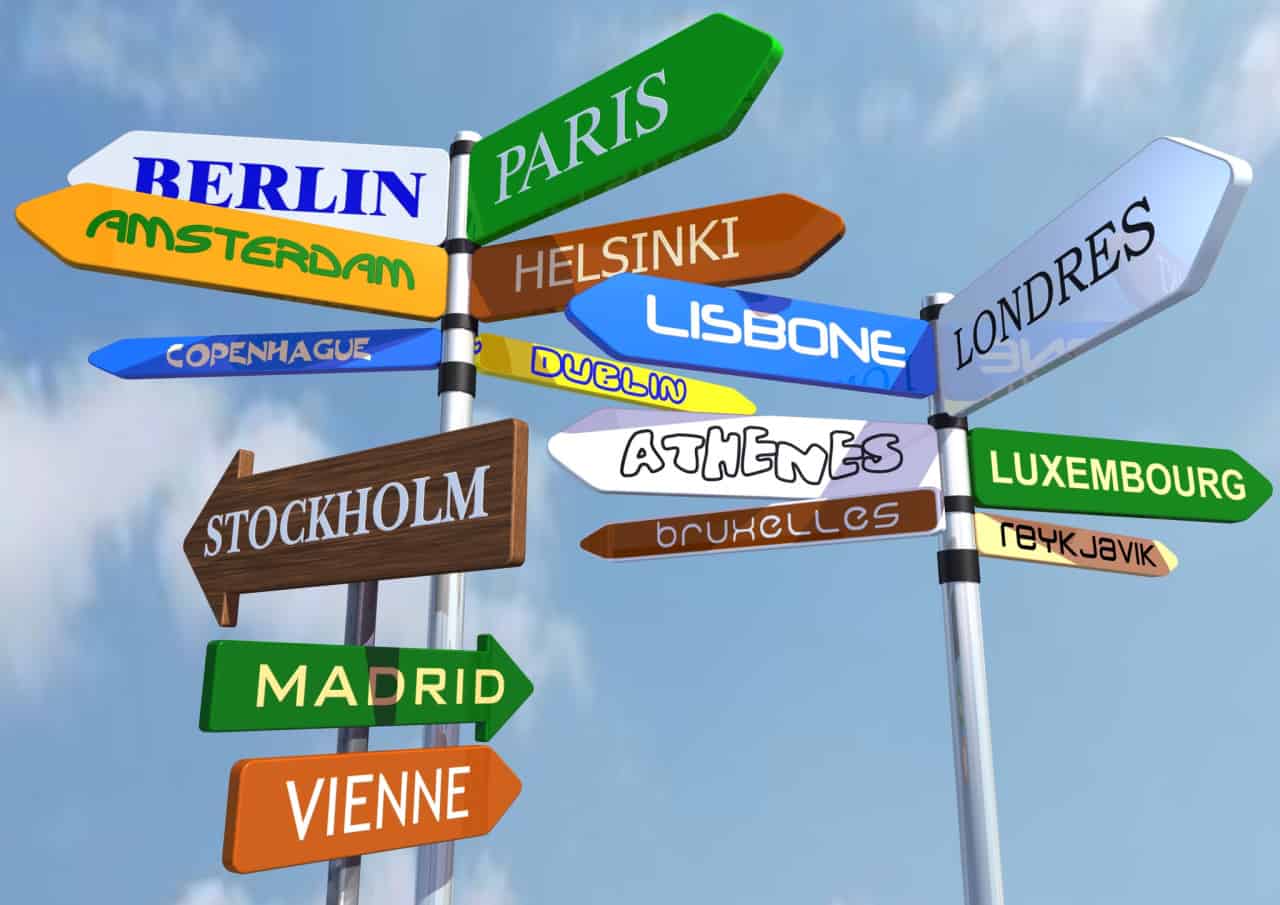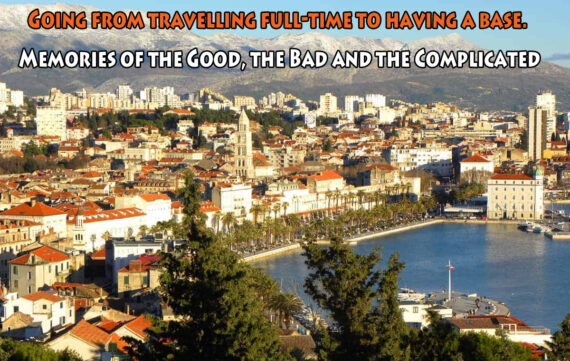
Why are Expats so darn Angry?
It always amazes me how nasty expats can be. We’ve encountered it many times in the past, usually on travel forums when researching a place (we’ve previously found forums on Thailand and Central America particularly nasty).
I’ve been reminded of this lately now that we’re living in Spain and part of a bunch of expat Facebook pages. Never mind the angry Brits who are upset about politics (angry about new EU rules on British citizens, angry about their own governments, angry about Spanish in general “targeting” them). Everyone on these pages gets into it no matter their nationality. Even fellow “mild-mannered and polite” Canadians.
Example from the Canadians living in Spain expat page:

Jeez, she just wants to meet some fellow English-speaking people. Why did that woman have to get all snarky on her? (by the way, Oxana handled it perfectly in the way she ended the topic).
I was on another expat site, a gardening website focusing on cactus. There I saw expats getting angry because others were asking questions on the wrong kind of plants.
“THAT IS NOT A CACTUS! IT’S A SUCCULENT!! You should read the group rules, this group is for cactus only and not for other plants”
Yeesh… can you imagine going to a Viveros and the guy frothing at the mouth because you were confusing succulents or yuccas with cactus?
So why are expats so darn angry all the time?
I’m not sure.
But here are a couple of ideas.
1) It could be that these are angry/miserable people to start off with. A quote I heard once that’s stayed with me: “There are two kinds of expats in the world: the kind who hate their home country and the kind who hate their new country”. True, but there’s a third type: the kind of expat that hates both and will never be happy anywhere.
2) A lot of Expats have a superiority complex and feel that locals should cater to them. So they get upset when they can’t get service in English, indignant when they feel that spending their “hard earned money” doesn’t get them VIP treatment, and angry when you suggest supporting “local” business (we’ve noticed that when “locals” on Facebook promote local businesses in Spain that it means the British pub down the street serving bangers. Suggest anything truly local – ie. Spanish – and it is met with derision by the expat crowd).
Which brings me to another subject. Why is it that you’ll meet expats who’ve lived 30 years in Spain and barely speak a word of Spanish?
Again, I think the answer boils down to a superiority complex.
3) The medium and the people on them. The medium – specifically facebook pages and forums – are something that didn’t exist 30 years ago. Today everyone, especially expats far from home, use them to keep in touch with their community and to keep up to date with the latest local news. They’re actually great. If I’ve ever had a question about where to buy a spin bike, what kind of plant that is in my backyard, or need a restaurant recommendation, I’ve had answers within minutes. Most people are very helpful.
But there will always be expats who do nothing but start trouble, people who treat FB pages and forums like their own personal page. I wrote about that a few years back: The Best and the Worst of Travel Forums. And dealing with Trolls, Haters, Expats, and other “Uglies”. Unfortunately, while a minority, there’s enough of them to feed the “Angry Expat” storyline.
As I say, we’re new to Spain. We love living here. So I can’t understand why Expats are so angry.

Related: The Pros and Cons of living in San Miguel de Allende

Related: Going from travelling full-time to having a base

Related: The Best & Worst places for Expats (2023)


As a Brit living in Spain I’m regularly embarrassed by my fellow expats! Facebook groups are definitely the worst, I put it down to them all just being a load of grumpy, retired Brits with nothing better to do than complain online!
Sarah I am from Ireland and I have been coming to the coastas for years and I am afraid many of the Irish are no better. Last year we met an Irish couple who’d been living in Caleta de Velez for 6 years and they couldn’t speak a single word of Spanish. My friend living in Torre Del Mar use to be a waiter and he had very similar experiences with many of the Irish and English expats that live there. The Irish and English bars are a magnit for many expats there but in many local restaurants you’d see hardly any.
In the end you get back what you put out. Positive people get back great experiences. And negative people the opposite. Let’s not focus on them. They are sad and lost. And frankly NOT our problem!😁
Great post Frank, really interesting topic.
From my limited experience, the people who seem to have integrated with local communities the best are those with children who are schooled along-side local children, speak the language with a local dialect and are part of a genuine local community. we know people in this situation whose children are now married into local Spanish families and have joined Spanish family businesses.
The worst seem to be those that retire or go to Spain later in life and who find it more difficult to take up a new language. I now find myself in this latter situation as we plan to head to Spain later this year with limited Spanish and only time will tell how much of the expat cliche we become – although we will fight hard against the expat vices you mention.
Out of interest, do you find some nationalities worse than others?
Finally, big shout to Oxana with a salutary lesson in how to handle oneself with dignity on a forum!
Cat
Hi Cat,
I think you are right. On my Mapping Spain blog I’ve interviewed different expats. Younger people tend to move to urban centers for work and families where they do fully assimilate/integrate, older expats tend to go to beach towns where retirement life comes first and “living in Spain” honestly comes 2nd. They like the sun, the weather, the cheap lifestyle, and getting together with friends from the same country. Everything else including a different language and way of doing things is, for many, a bother…
The British get a bad rap and that’s mostly because they are the majority of expats. But I’ve heard people in tourism say that the Dutch and Germans can be as bad. I think it’s mostly because of the types of people (generally speaking) that settle on the coasts and not so much the nationality.
I have a theory. They have too much time in their hands and life is too good.
!!!!!
That’s a questions which we haven’t given a thought to. Every individual goes through their own ups and downs, and likewise people are happy and sad. It’s a cycle of life and I haven’t seen anyone only happy or only sad. Having said that probably expats have their own inhibitions of staying in a foreign land with less privileges after working for the country’s economy and contributing towards its growth and well-being. Nevertheless you have definitely put some valid points of not being happy or not learning the local language. I still look at the other side, are they treated equally as the natives? The ones who are angry have probably suffered discrimination to an extent that may be has left a major scare on their whole persona and wellbeing. The question is who is to be blamed? The system or an expats dilemma to go back to their home country or stay put.
sigh. well thats people for ya. Cant live with em, can’t…. i forget how the saying goes.
But really, forums on Facebook can be very scary places. For every person there who’s happy to give advice you’ll find three people who just want to abuse for no reason. and I imagine people who are not happy abroad are also not happy at home! all good points. great post!
Thanks Andy! We think alike 🙂
Hi Frank. I hope this might help to give another perspective. Spain and Portugal purposely built towns that where not based on the local cultures or for local people. Quite simply they are tourist urbanizations (factories). Some of the people who go to live/retire there, have been spending a few weeks of the year on holiday for some or most of their working lives. They didn’t really move to Spain or Portugal; they just liked the product. They want the fun times of their holiday experiences. This has been a profitable industry since the sixties. Doesn’t work very well for some, as two or three weeks on holiday is not the same as living in a place. You are not the client anymore. Some get sort of stuck in a false client mentality. This definitely would be construed as a superior attitude. I loved the Algarve and Spain in the 70s and 80s (the Greek Islands to, but that is a different culture). Most of the places I would visit back then I would rarely get to speak Spanish or Portuguese. I didn’t care!!!! I wasn’t there at the time to immerse myself in the local Latin culture. Just about all of my social during these visits would be with Brits, German, Scandinavian, Swiss and Dutch. The locals who had business or worked there mostly saw you as 2 – 3 week visitors. Perfectly normal just part of their business model in a service industry. Its very different interacting with locals when you are living and working in a place. I know I am preaching to the choir. Happy travels.
Hi Happyfrog,
Thanks very much for taking the time to comment. I understand where you’re coming from. We’ve all been on holiday in places where we go to have fun and where we don’t really get to know a place and have any meaningful interaction with locals. But wouldn’t you think that if these same people (who previously visited 2-3 weeks a year) that they would change their philosophy after deciding to live full-time?
But that also doesn’t excuse the full-timers who get all uppity with the newbies as on that example I posted.
In the end, I guess it’s just about different people and how they express themselves…
Hi Frank.
You would think so, but some just want the familiarities of home with a more temperate climate. Three weeks or thirty years makes no difference. They go to that place because they don’t have any intention of learning the language. A few have this very weird Spanglish that they use. Or just talk louder and over emphasize the vowels. There are TV comedies and stand up comedians that take the rise hilariously on this subject. The people that it is directed at love this humour the more than anyone.